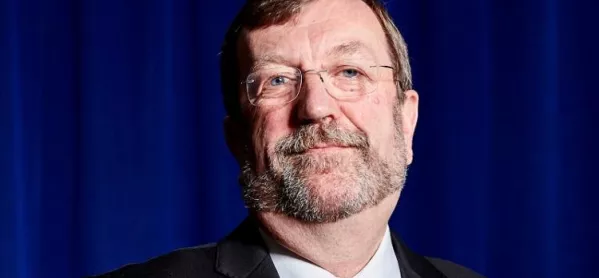The ambitions of the Raising the Participation Age (RPA) legislation, first introduced in 2007, have remained unrealised, a new report concludes.
Mending the Gap: Are the needs of 16- 18-year-olds being met?, written by New College Durham principal John Widdowson and published today, says effective implementation of RPA must be one of the most important responses to the challenges the country faces, and sanctions should be introduced as a “last resort” to ensure young people participate.
The report, sponsored by the Campaign for Learning and NCFE, says moves to raise the participation age in full-time education, employment or an apprenticeship to 18 had had “some relative success in reducing the number of young people considered NEET at age 16”.
‘Unable or unwilling’
However, Mr Widdowson points out that there is almost a doubling of that number in the subsequent year at age 17, “a pattern which is repeated in each successive year”. “It is not unreasonable to conclude that despite the success in persuading the vast majority of 16-year-old school leavers (and their parents) that continued participation is required, it soon becomes apparent either because of the lack of opportunities or the lack of enforcement young people are increasingly unable or unwilling to participate,” he writes.
To equip young people to meet the challenges ahead, the report calls for the duty to participate to be extended to end of the academic year in which a young person turns 18. At the same time, funding should be made available to allow providers to deliver high-quality provision for full-time academic and technical education, and apprenticeships offered by levy and non-levy payers, until the 19th birthday.
Financial support should be extended to enable 16- 19-year-olds to participate in full-time education and apprenticeships until their 19th birthday, while sanctions should be introduced as a last resort to ensure young people and parents support the duty to participate.
‘Making a valuable contribution’
This, the report stresses, would not be a measure to criminalise young people, but to ensure that cases of non-participation are highlighted to ministers in order stimulate the necessary policy change to offer young people the opportunities they deserve.
“The challenges and opportunities post-Brexit, coupled with the need to sustain a high-skill economy, give the pressure to achieve an inclusive society an added economic imperative,” says the report. “Effective implementation of RPA must be one of the most important responses. Once successful, and with successive generations of 16- 18-year-olds making an increasingly valuable contribution to the success of the nation, there must be a debate as to whether these vital and energetic young people should be given a real say in their futures by enabling them to take part in our democratic processes and vote.”
Denise Ellison, chief operation officer at Just IT Training, said: “Over the past five years, 85 per cent of our apprentices have been 16-18 year olds. In the past nine months, this has fallen to near single digits. To ensure that the government’s social and inclusion agenda is delivered upon, we must quite simply guarantee funding and initiatives to drive employers’ appetite to offer young people employment through the Apprenticeship pathway. It’s vital for our young population and vital for the future skill needs of the UK.”
Want to keep up with the latest education news and opinion? Follow Tes FE News on Twitter, like us on Facebook and follow us on LinkedIn




